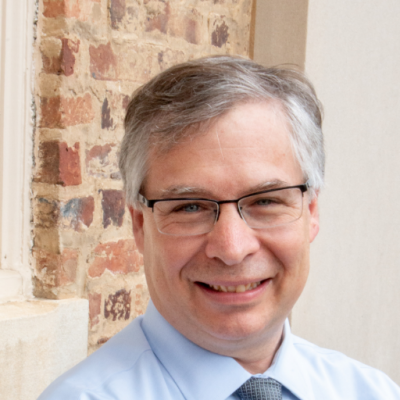 Andrew J. Perrin is SNF Agora Professor and Chair of Sociology in the Krieger School of Arts and Sciences. He is a cultural and political sociologist working on issues of democracy, including civic engagement, effects of higher education, and public deliberation. His research explores what people need to know, do, and be to be effective, creative, thoughtful democratic citizens. He is author or co-author of five books, including Citizen Speak: The Democratic Imagination in American Life (University of Chicago Press, 2006), and American Democracy: From Tocqueville to Town Halls to Twitter (Polity, 2014). His research record is broad and includes studies of public opinion and letters to the editor; translations of key Frankfurt School texts related to how Germans thought about World War II in the postwar period; analysis of college education’s effect on civic engagement; and even interdisciplinary research on culture, children’s movies, and obesity. Additionally, he is one of the conveners of the health and democracy collaboration at SNF Agora
Andrew J. Perrin is SNF Agora Professor and Chair of Sociology in the Krieger School of Arts and Sciences. He is a cultural and political sociologist working on issues of democracy, including civic engagement, effects of higher education, and public deliberation. His research explores what people need to know, do, and be to be effective, creative, thoughtful democratic citizens. He is author or co-author of five books, including Citizen Speak: The Democratic Imagination in American Life (University of Chicago Press, 2006), and American Democracy: From Tocqueville to Town Halls to Twitter (Polity, 2014). His research record is broad and includes studies of public opinion and letters to the editor; translations of key Frankfurt School texts related to how Germans thought about World War II in the postwar period; analysis of college education’s effect on civic engagement; and even interdisciplinary research on culture, children’s movies, and obesity. Additionally, he is one of the conveners of the health and democracy collaboration at SNF Agora
Perrin earned his BA from Swarthmore College and PhD from the University of California, Berkeley. Prior to joining the Johns Hopkins faculty, he was the Ruel Tyson Distinguished Professor of the Humanities and Professor of Sociology at the University of North Carolina, Chapel Hill. He was on the faculty of the University of North Carolina for 20 years and held several leadership positions there, including director of the Institute for the Arts and Humanities. He also led UNC’s general education curricular reform. He is a contributor to Scatterplot, the sociology blog, and has written for Public Books and the Chronicle Review, among other outlets.
He writes on the intersection of culture and democracy, particularly the opportunities for frank, productive conversation across big differences. He is currently working on two major research efforts:
- One is a book with a colleague in communication studies on how people use evidence in public debates. It will examine what people expect to be convincing to others and how they use facts, information, and beliefs to try to make their points, both online and in other public forums. It will offer ways to use evidence better to improve those debates.
- The other is a multi-method examination of the ways higher education contributes to improving civic engagement and public deliberation on campus and off, as well as how higher education can support democracy.
